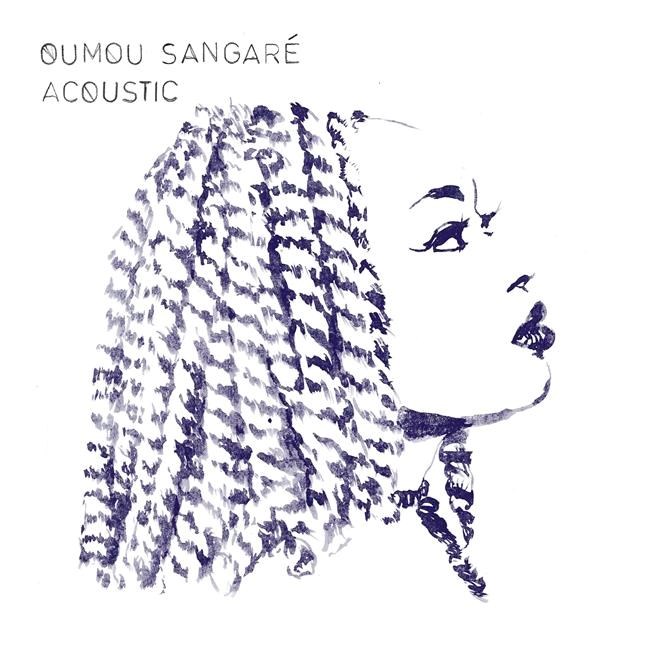Oumou Sangaré, “Acoustic” (No Format!)
Even if you don’t understand a word, it’s clear that Mali’s Oumou Sangaré is not singing about anything slight or frivolous.
“Acoustic” is mostly a reinterpretation of “Mogoya,” the 2017 album that ended a nearly decade-long break by one of the West African country’s most celebrated musicians, spent further developing a business career stretching from hotels to agriculture and even the auto industry.
These versions are in stark contrast to the originals, stripping off synths, percussion and other electronics to leave a sparse accompaniment, usually just backing vocals, acoustic guitar, and a kamele ngoni, a hypnotic African harp.
Recorded in a northern Paris suburb over two days without amplifiers, overdubs or even headphones, its atmosphere lends the 11 songs a direct intimacy and sets an ideal stage for Sangaré’s gale-force voice.
What stays unchanged is the Grammy winner’s commitment to themes and issues that are often taboo in her part of the world, and elsewhere, for that matter, including women’s desires, female circumcision, polygamy and forced marriages.
Opener “Kamelemba” puts some teasing
One of the two non-“Mogoya” tunes, “Diaraby Nene,” comes from Sangaré’s 1989 debut “Moussolou,” and describes two lovers’ “shivers of passion,” effectively transmitting the intensity of their affections. It was sampled on Beyoncé’s “Mood 4 Eva” from “The Lion King: The Gift,” the pop star’s album inspired by “The Lion King.”
On “Fadjamou,” Sangaré references the importance of a person’s family name and all the connections it represents. “Mali Niale” seeks to inspire her emigrated compatriots to return home and contribute to their native society.
“Mogoya” was also released as a collection of remixes two years ago but it’s this less-is-more approach on “Acoustic” that best presents Sangaré’s consequential topics and striking musicianship.
Pablo Gorondi, The Associated Press



